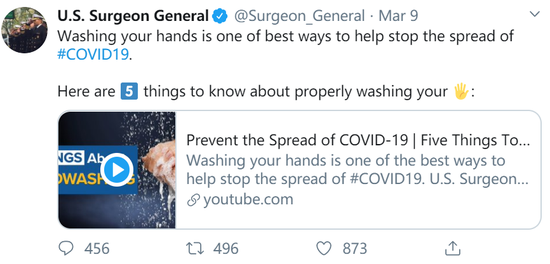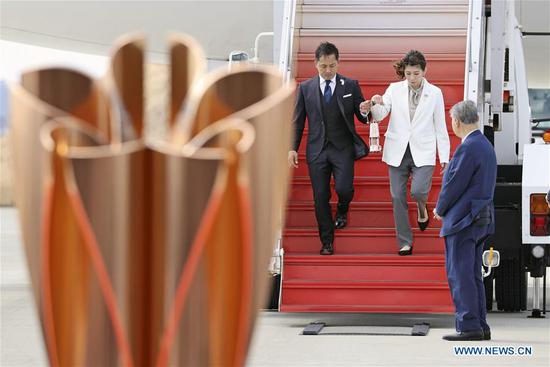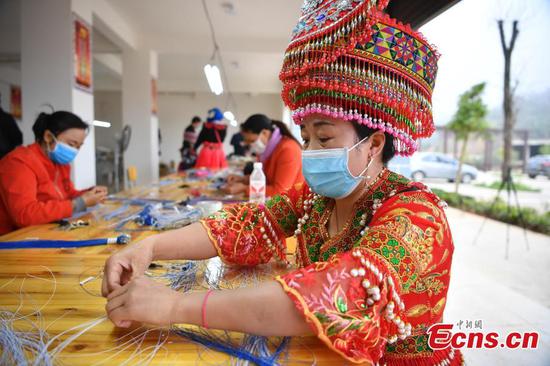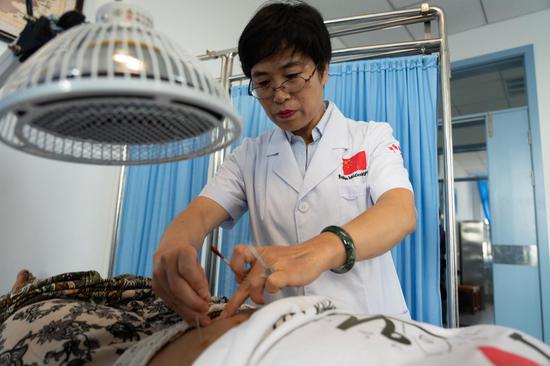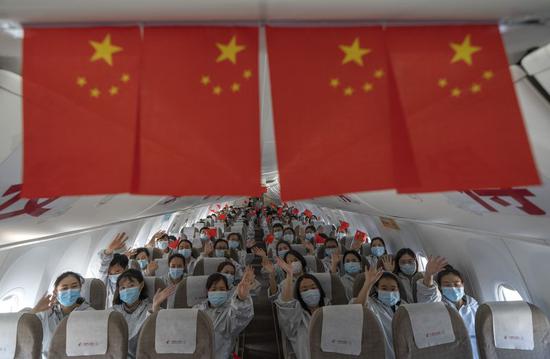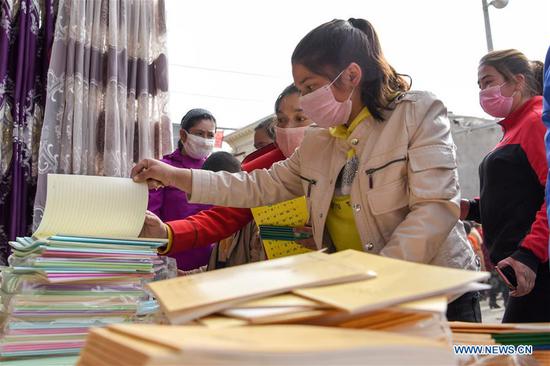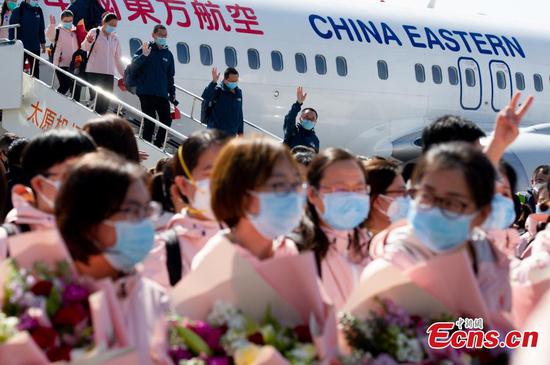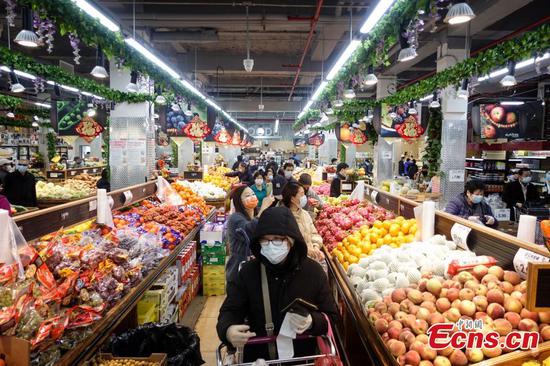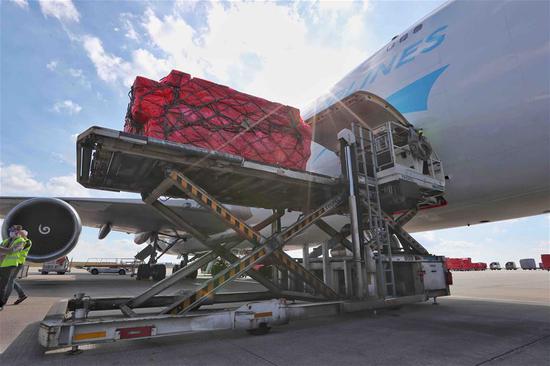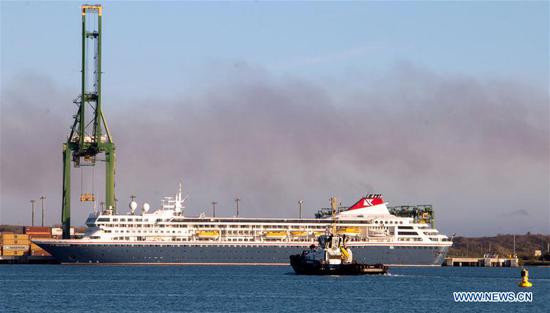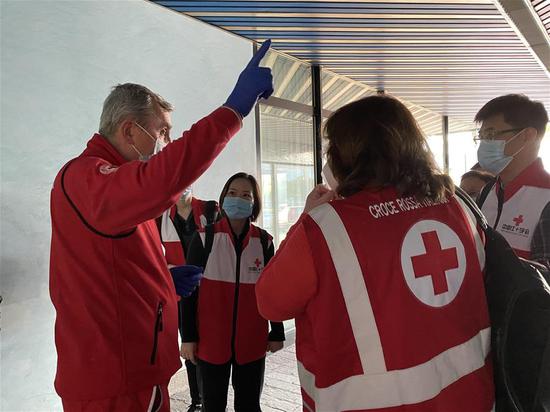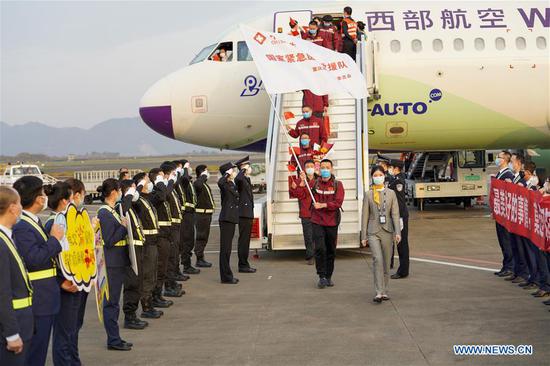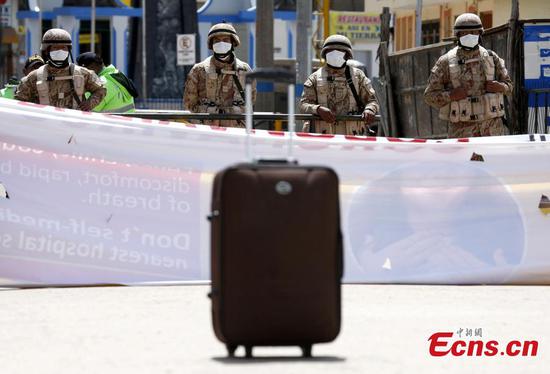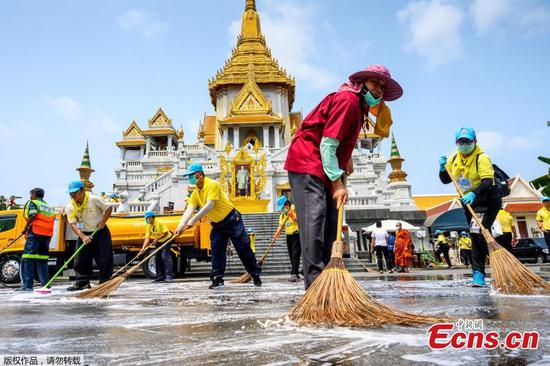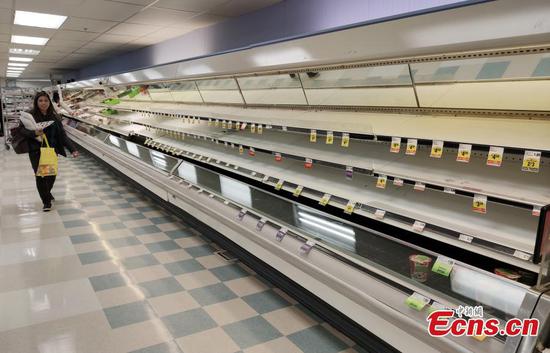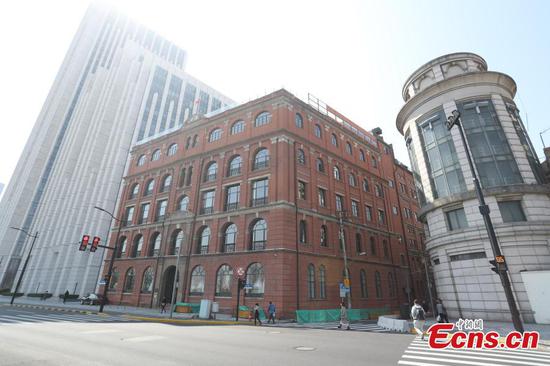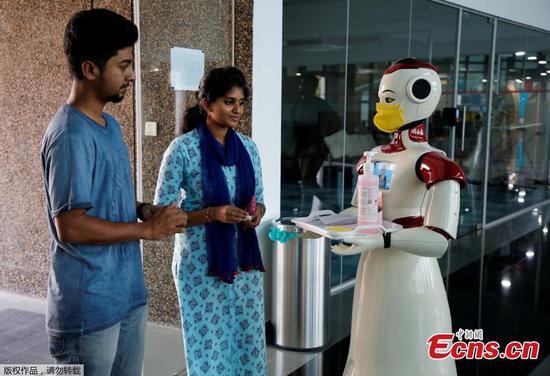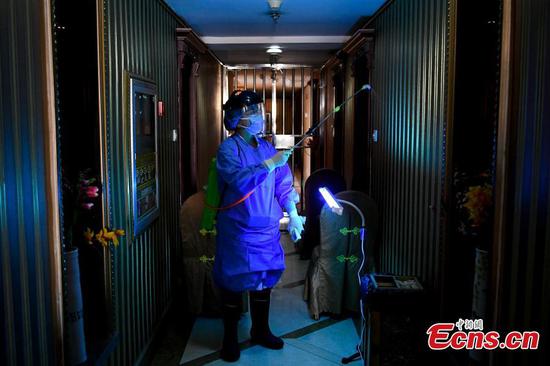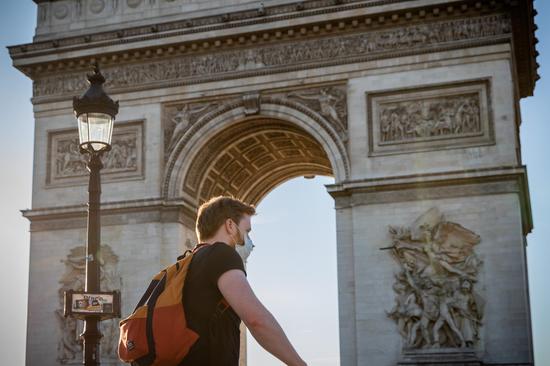
A man wearing a protective mask passes by the Arc de Triomphe on the Champs Elysees in Paris, France, March 15, 2020. (Photo by Aurelien Morissard/Xinhua)
COMMON ENEMY, COLLECTIVE RESPONSIBILITY
With COVID-19 reaching over 218,000 people and spanning 158 countries and regions, according to the latest statistics from the Center for Systems Science and Engineering at Johns Hopkins University, the global community is facing an escalating challenge from the disease.
According to a recent Facebook poll on how COVID-19 is affecting your decision in wearing masks conducted by Xinhua, most people think it's not only about culture, but our collective responsibility.
"Wearing masks, it's not about culture, it's all about protecting yourself, your loved ones and others too if you are sick," commented a netizen named Albert Joseph Rapiscal Radoc.
But a shortage of face masks and medical supplies prevented those in the West who have already realized the importance of it from wearing one.
"I have been looking for masks for more than a month now, living next to Lombardy (in Italy), but the problem is that authorities didn't organize well and you can't find any more masks in pharmacies," commented Ric Prim.
"It's better to wear them now than sorry later," said Cyril Moras.
Actually, health experts have mixed ideas on the efficacy of face masks to prevent the coronavirus which is generally spread through respiratory droplets from the nose or mouth of a person with COVID-19 when he coughs or exhales.
Some argue handwashing is more important, while others say masks can help stop transmission of people who have shown symptoms.
U.S. Surgeon General Jerome Adams urged the Americans to stop buying masks, as it could limit stocks for health care workers.
"They are NOT effective in preventing general public from catching #Coronavirus, but if healthcare providers can't get them to care for sick patients, it puts them and our communities at risk," wrote Adams on Twitter.
In China, where COVID-19 cases are drastically going down and businesses are gradually resuming operations, the wearing of masks has long been made compulsory in public places, while most Western countries just advise people to do so and many people still choose not to wear it when going out.
Anyway, to wear, or not to wear, it's a deep-rooted cultural thing and a global pandemic may change it for now, will it after?
